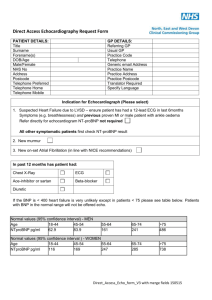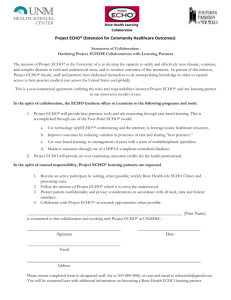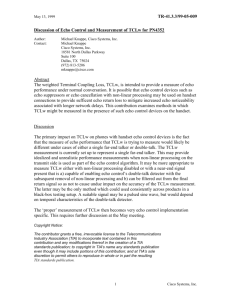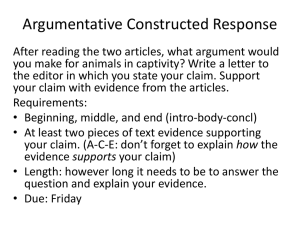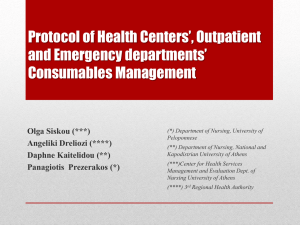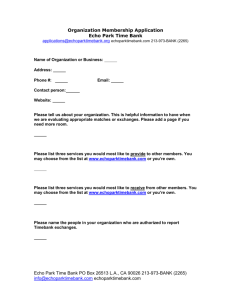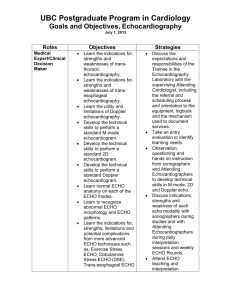Echocardiography in the critically ill child
advertisement
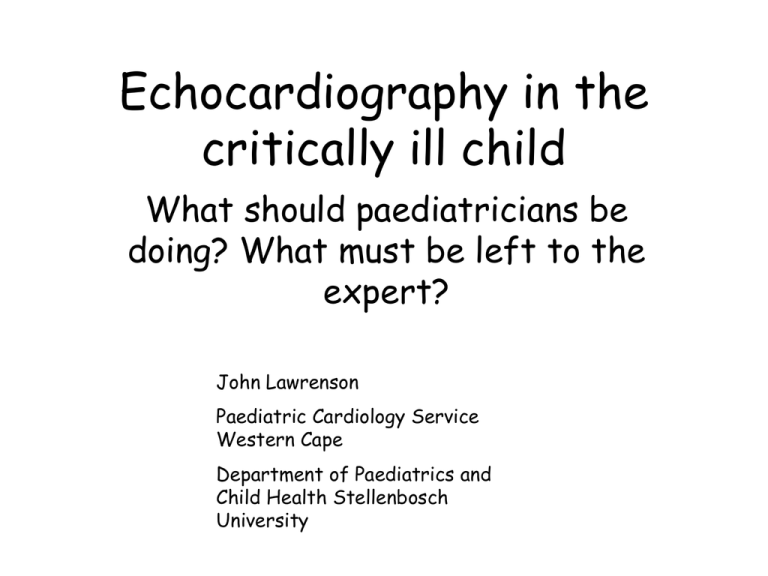
Echocardiography in the critically ill child What should paediatricians be doing? What must be left to the expert? John Lawrenson Paediatric Cardiology Service Western Cape Department of Paediatrics and Child Health Stellenbosch University Let’s start with the expert 2007 Why is echocardiography so difficult? • It isn’t but it takes practice – Not quite 10 000 hours – A trainee will spend 12 X 40 hour weeks doing echo • Machines are expensive and fragile – But are getting cheaper (cost of a good ventilator) • Machines are designed for adults • Cross platform units are hard to find Ultrasound examination of the heart Paediatric Cardiologist Neonatologist Point of Care Emergency/ICU Anaesthetic use Ultrasound examination of the heart Paediatric Cardiologist diagnosis research Neonatologist PDA/ pulmonary hypertension functional Emergency/ICU Point of Care haemodynamic Anaesthetic use Haemodynamic Residual defects Focused point-of-care echocardiography - Acronym soup • FEER Focused echocardiographic examination in resuscitation • BLEEP Bedside limited echocardiography by the emergency physician • RACE Rapid assessment by cardiac echo • FATE Focused assessed transthoracic echo • FAST Focused abdominal sonography in trauma (one subcostal look) Resucitation • German experience • Indications for emergency echo during resuscitation • Study needs to be 5 seconds long and part of the resuscitation and not prolong non flow intervals • 8 hour training • Helpful in ‘PEA’ and effusions In the ICU Seppelt 2007 • Impediments to ‘uptake’ (Seppelt 2007) – Cost – Senior ‘old dog’ clinicians – Lack of training • National program in France •IVC Volume – subcostal •LV EF – standard •2-D •11 hrs training Tennessee •31 sick patients – reasonable results – checked by Cardiologist The next stage in the ICU • Function – Systolic – RV function • Filling – Diastolic areas – Empty ventricles more reliable than full ventricles – IVC and change with inspiration (surrogate RA pressure) • Pressures - pulmonary • Output • Valves Neonatologists • There aren’t enough cardiologists in the World to meet the needs of neonatologists • ..in Cape Town… • Neonatologists have moved beyond the PDA to functional assessments • A special bond has to exist between cardiologists and neonatologists • Increasing numbers of neonatologists are skilled echocardiographers Sampson and Kumar 168/11000 - 83 patients Sampson and Kumar A Paediatrician for Polokwane or Fiji or wherever • Basics – Switch on machine – Recognise the bad stuff • Intermediate – Neonatal bad stuff – Rheumatic heart disease • Advanced – Congenital heart disease; refer for surgery Learning echo The wish to learn The need to learn Introduction and help from expert Time Additional learning Going solo! Do not forget to examine the patient first! Do not forget to examine the patient first! Do not forget to examine the patient first! Do not forget to examine the patient first! Do not forget to examine the patient first! Do not forget to examine the patient first! The future of echo for the noncardiologist • Telemedicine – Good examples from Western Hemisphere – YouTube style studies • Dummy training using echo simulators • Smaller powerful laptop type machines • Hand held machines Thank You

